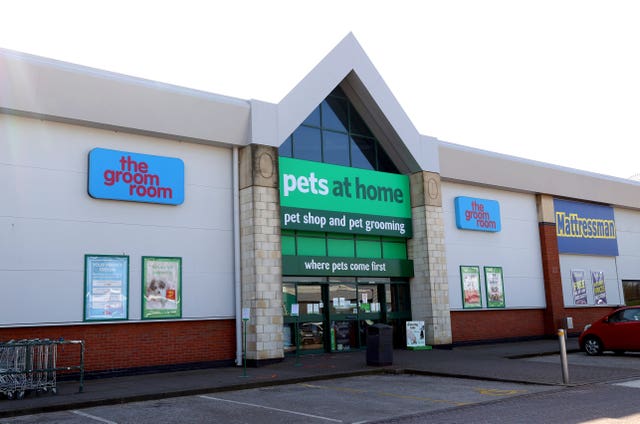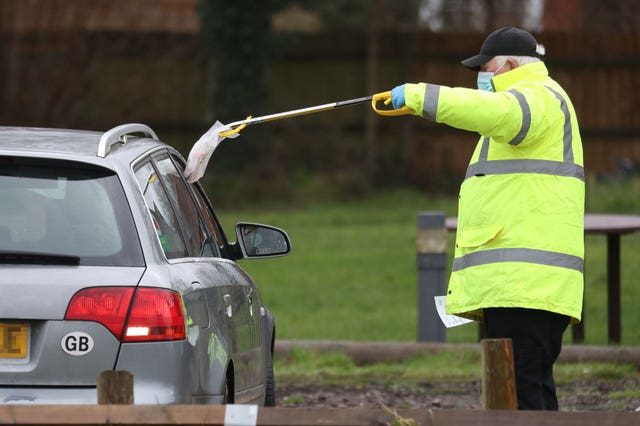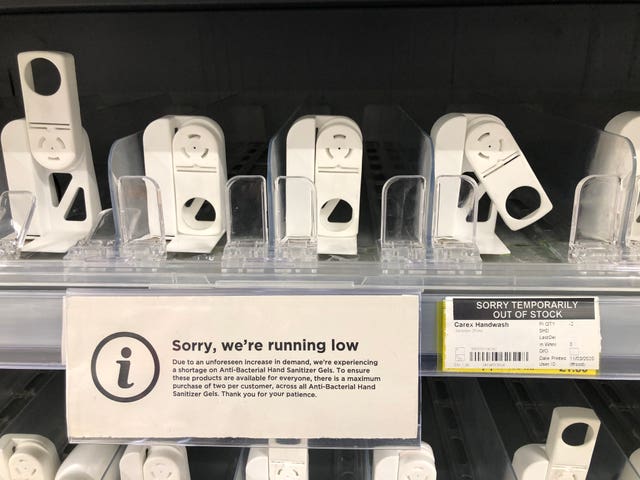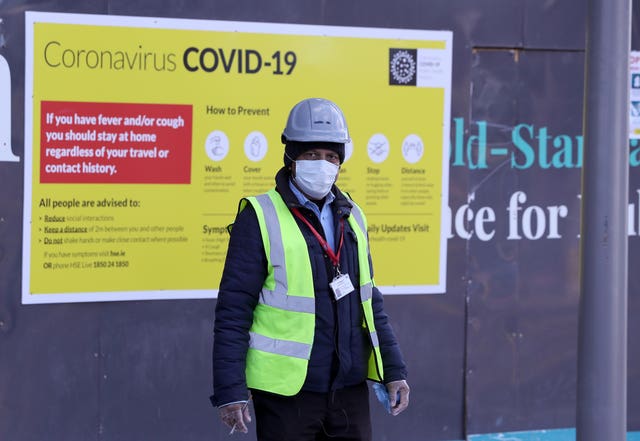Hygiene, pet stores, outsourcers and builders – business winners from pandemic
PA takes a look at some of the sectors that gained most from the global pandemic, and some that lost out.

The Covid-19 crisis saw some obvious business winners emerge from the pandemic as workers were forced to stay at home as high streets and the hospitality sector shut down.
Online retailers and supermarkets were the big winners, alongside takeaway firms and delivery apps including Deliveroo and Just Eat.
But the PA news agency takes a look at some of the other, less-considered sectors and businesses to benefit and those that failed to live up to expectations.
Pet Shops
Technically part of the retail scene, pet shops ended up soaring above their high-street peers. Enjoying “essential” retail status, companies like Pets at Home enjoyed significant boosts in sales as workers stuck at home with little to do turned to adding a pet to their lives.
Pets at Home said it benefited from a pet “baby boom” and has issued four profit upgrades since the start of the pandemic. Although the company itself do not sell cats or dogs, the assorted treats, food and accessories that come with any new pet ownership saw sales jump to record levels.

The long-term impact is expected to be felt in the sector for years to come, with ancillary services including vet businesses and pet food manufacturers likely to enjoy bumper sales.
One example is pet care business IVC Evidensia, which is planning a stock market listing after raising 3.5 billion euros (£2.9 billion) earlier this year – valuing the firm at 12.3 billion euros (£10.5 billion).
Outsourcers
With the Government incurring record debts not seen since the Second World War, outsourcers have been one of the big winners from the pandemic.
Serco was one of the biggest winners – and faced the greatest ire from public and politicians alike – as it revealed profits soared by 36% in 2020.
Operating more than 25% of the NHS Test and Trace sites and half the tier three tracing capacity in the UK helped Serco bank £400 million from Covid-19 services.

Chief executive Rupert Soames said of the future of the outsourcing market: “We believe that Covid-19 has reconnected hundreds of millions of people worldwide with Government services and reminded them of the value of well-organised service delivery.
“This will make Government more confident in promoting services to citizens. But the fact is that deficits and levels of Government debt have increased to levels not seen outside world war, and governments will be sharply focused on delivering more and better for less. This is positive for our market.”
Online learning
With schools shut for vast swathes of the lockdown and universities switching to online learning to continue operating throughout lockdowns, which tended to take place during term time, the online learning sector enjoyed a strong boost in sales.
Even before the pandemic the shift to online learning was expected to grow as technology improved. Education publisher Pearson recently predicted the online learning space will be worth £7 trillion by 2030 – up from £5 trillion currently.
And a survey for the Times Higher Education magazine found 30% of education support staff agree that the best online education is more effective than in-person teaching, although students remain less sure. A separate study also found 63% of university leaders predict that prestigious universities would have full university courses available for online study by 2030 too.
Health and hygiene
Hand sanitiser sales soared so rapidly during the Covid-19 pandemic that the Office for National Statistics (ONS) officially added it to its basket of products when calculating inflation. The Competition and Markets Authority (CMA) also launched an investigation after some stores started hiking prices and others limited purchases to three sanitisers per customer.

Soap also saw a strong surge as we were all encouraged to wash our hands when coming home – whilst singing a variety of different songs to ensure proper washing.
Dettol maker Reckitt Benckiser also reported strong sales, up 12% during 2020, as customers sought to protect themselves from Covid-19.
But it was not all good news for the sector – companies including PZ Cussons and Unilever both reported falls in sales of shower gel, deodorant and shaving products as the work-from-home crowd opted against the same rigorous showering and grooming regimes of pre-Covid times.
Games developers
With people stuck at home, the games market also had a good pandemic, culminating most noticeably with online gaming platform Roblox listing in the US and hitting values close to 40 billion dollars (£28.7 billion).
In the UK, video game spending reached £4.43 billion in 2020, an increase of 17.6% compared to the year before, according to the Entertainment Retailers Association (ERA).
And developers also had record revenues and profits, leading to a plethora of deals and upgrades.
Video game developer and publisher Jagex, best known for online role-playing franchise RuneScape, was snapped up in a multi-million pound deal by investment giant The Carlyle Group.
Worms maker Team 17 said profits jumped 36% in 2020, whilst others including Frontier Developments said annual sales were expected to hit the top end of forecasts.
Housebuilders
The first lockdown in March 2020 saw all construction work cease – putting a serious dent in the prospects of builders.
But as the year progressed and Covid-secure measures were introduced, alongside stamp duty holidays and Government interventions, the residential market boomed, with construction one of the few sectors of the economy to continue growing.

Housebuilder Taylor Wimpey issued a profit upgrade as bosses said the post-spring lockdown saw a stronger recovery than expected.
And the upbeat mood for the sector could be felt in the supply chain too, with materials firm Breedon announcing in November it expected profits for the year to beat expectations.





